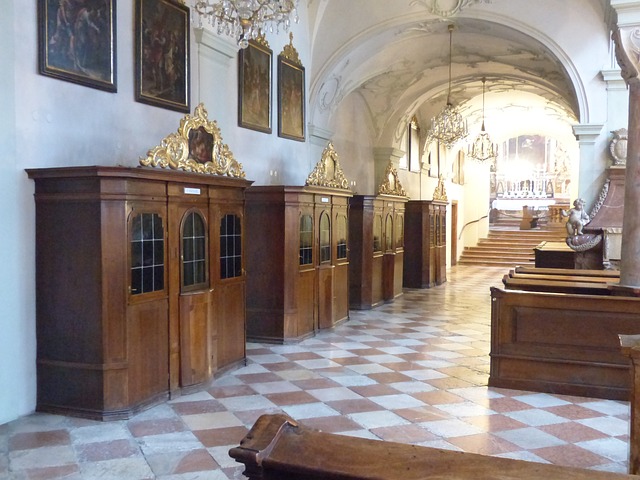Today’s post is by a guest blogger, whom you can follow at https://blogofacitypriest.com — a catchy name, no? 😉
But this can seem strange: why does God find joy in a sacrament we often dread?
But there are many myths about confession. Perhaps the biggest 7 are these:
“Vatican II did away with confession.” On the contrary – in Sacrosanctum Concilium #72 Vatican II reaffirms its importance.
“Jesus never spoke about Confession.” Actually, amongst his first words
“I will shock Father.” Sin is boring — and Father doesn’t hear anything new.
“I’m so bad it will take me three days to say all my sins” I hear this a lot. Really, it might take 5 minutes — there aren’t many kinds of sin. This phrase usually means the person feels embarrassed to admit their stuff-ups. Don’t be afraid!
“Father will treat me harshly.” While priests are truly sinners, this is pretty unusual. Priests are there to wash your feet as your humble servant.
“Father will remember what I said.” Hearing the same stuff repeatedly, priests don’t remember: and we give it over to God afterward and deliberately forget.
“The priest might break the seal.” Under no circumstances ever may a priest share or act on anything he has heard in confession. Even if what was confessed was very grave, or the confession wasn’t finished, or they are not Catholic. Even if
There are good reasons we have the seal. Firstly because, as every Catholic knows, while the priest is there, at the request of Christ himself, what is said is not for his ears, but God’s — and he has no business betraying the contents of another person’s soul to anyone. Secondly — any attempt to oblige the breaking of the seal would immediately kill the Sacrament of Confession: no one would ever go. What about the innocent? This is a fair question. Lifting the seal increases the danger to the innocent from wrongdoers — for the simple reason that no wrongdoer will ever tell the priest what they have done if they know the priest is mandatorily obliged to report it. The seal of Confession thus provides a service to society by offering a space society cannot itself offer where culprits are confronted with the reality of their evil and assisted to take steps to take responsibility for their actions.






Recent Comments